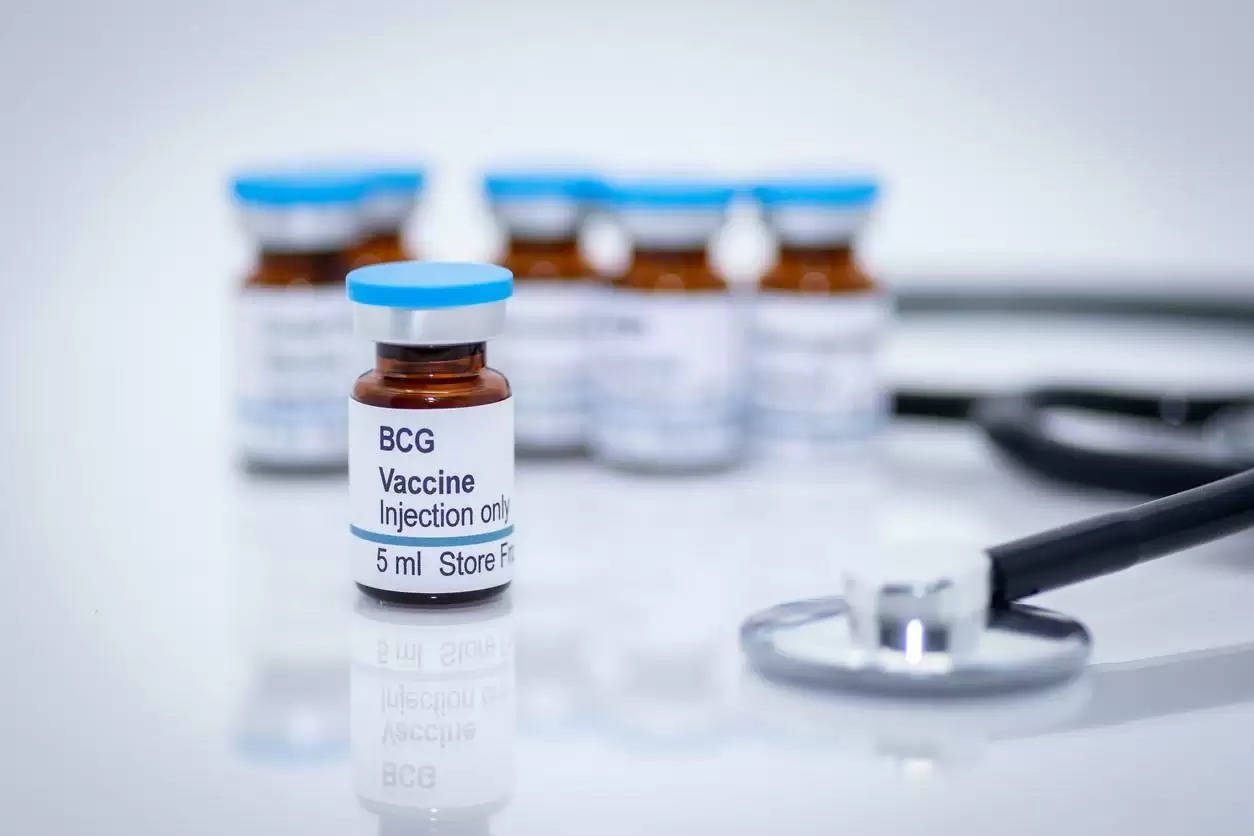Healthcare professionals who receive the BCG vaccine do not experience a reduction in COVID-19 risk.

Off-target immunomodulatory effects of the BCG vaccine could provide extra protection against other illnesses. The vaccine is linked to lower risks of respiratory illnesses in adults and adolescents as well as lower risks of mortality from any cause in babies.
BCG vaccine repurposing was suggested during the early COVID-19 pandemic to provide protection from COVID-19. In the absence of SARS-CoV-2 vaccinations, the vaccine was thought to improve protection against the virus.
In the current investigation, researchers conducted a randomised controlled trial to see whether COVID-19 incidence and severity would be lower in HCWs who had received the BCG vaccine. There were two phases to the study's execution.
Between March 2020 and May 2020, only Australian HCWs were hired for the initial phase. Between May 2020 and April 2021, HCWs were hired for the second phase in Brazil, Spain, the Netherlands, and the United Kingdom.
If a subject had previously tested positive for SARS-CoV-2, had received the BCG vaccine within the previous year or another live-attenuated vaccine within the preceding month, participated in another COVID-19 trial, or had a contraindication to the BCG vaccine, they were excluded from the study.
The BCG vaccine or a saline placebo was administered randomly to participants in the double-blind second phase, and they had a year of follow-up.
Since there was very little community transmission of SARS-CoV-2 during the first phase, the current analysis concentrated on the second phase. For serologic testing, blood samples were taken at the beginning and then every three months after randomization.
In order to conduct the SARS-CoV-2 reverse-transcription polymerase chain reaction (RT-PCR) assay, Brazilian HCWs also provided respiratory swab samples.
Age group, location, and the existence or absence of coexisting conditions were all taken into account while stratifying randomization.
Intradermally, either 0.1 ml of the BCG-Denmark vaccination or a placebo was injected. At six months after randomization, the primary outcomes were the frequency of symptomatic COVID-19 and severe illness.
A COVID-19 episode of severe sickness is one in which there is no hospitalisation or death. The secondary outcomes included asymptomatic infection, the duration of COVID-19 before symptoms appeared, the number of symptomatic days, the number of days missed from work or bedridden, the number of episodes of COVID-19, and sequelae.
3,988 HCWs were randomly assigned to receive the BCG vaccine or a placebo in the second phase. Except for the slightly higher proportion of females among placebo recipients, baseline characteristics between vaccine and placebo recipients were comparable.
The majority of the participants (64%) were found in Brazil. At the start of the study, 14.5% of participants tested positive for SARS-CoV-2 antibodies, while 2.7% of participant swabs from Brazil tested positive for the virus.
As a result, 1,703 participants in the BCG group and 1,683 in the placebo group made up the modified intention-to-treat population. In 132 BCG recipients and 106 placebo recipients, COVID-19 symptoms were noted. In the BCG and placebo groups, severe COVID-19 affected 75 and 61 patients, respectively.
For at least three days, most patients with severe illnesses were unable to work. Compared to patients who received a placebo, BCG recipients had a greater likelihood of experiencing any COVID-19 episode. There were five hospitalisations in each group. Compared to the placebo group, BCG recipients aged 60 or older experienced fewer days of symptomatology.
BCG recipients experienced fewer days of symptomatic illness than placebo receivers in a sample of HCWs without concomitant illnesses. Those who received a placebo experienced fewer symptomatic days than those who received BCG in a sample of those who also had comorbid illnesses.
Nine receivers of the placebo and twenty BCG participants reported a total of 30 adverse events. All severe adverse events were deemed to be unrelated to the intervention by the investigators.
In comparison to the placebo, the BCG vaccine did not lower COVID-19 risk within six months of vaccination, according to the study's findings. Notably, BCG recipients had a higher risk of experiencing a COVID-19 episode than placebo subjects did.
Since more than a third of the participants had previously received the BCG vaccination, it has been hypothesised that off-target effects may be more common in previously immunised individuals.
Furthermore, it's possible that a second (BCG) vaccination won't result in any additional off-target advantages over what the first shot already offered.
Surprisingly, there was no evidence of increased severe COVID-19 incidence among those who had received a BCG booster shot, but there was in the BCG group among those who had not previously received the vaccine. In conclusion, BCG vaccination did not reduce COVID-19 risk in healthcare workers, and there may be an enhanced
.png)